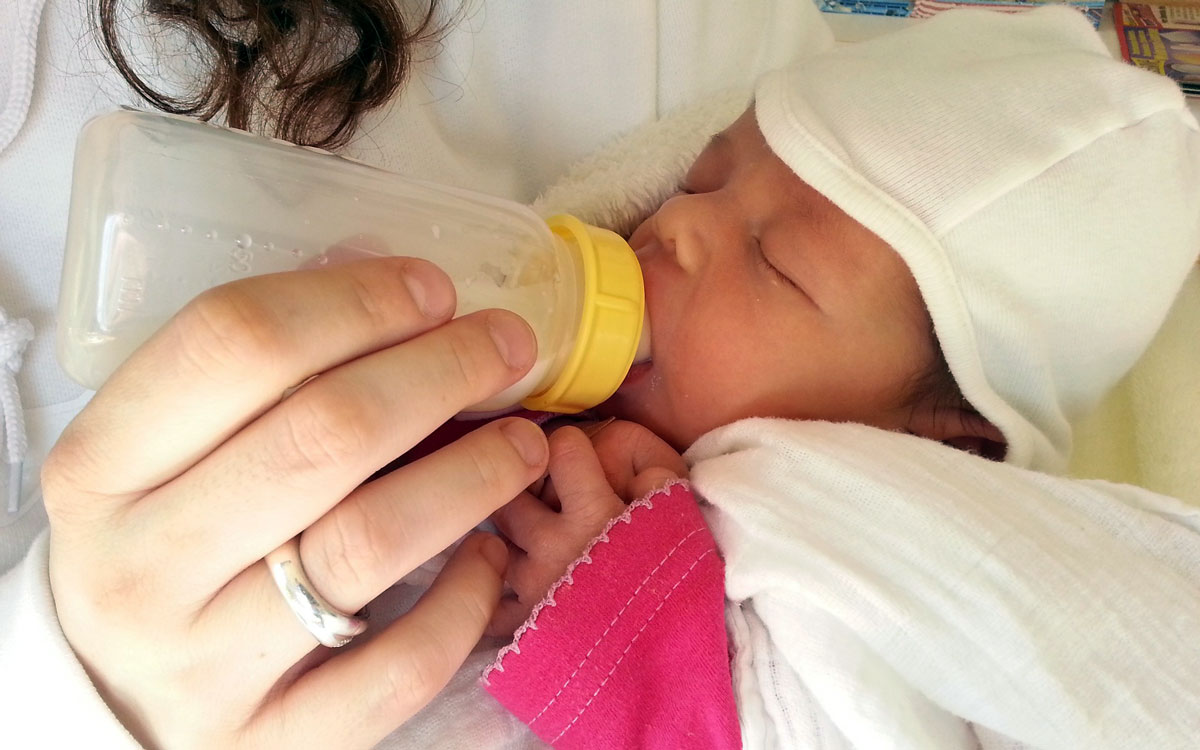The World Health Organisation recognises childhood obesity as one of the most serious public health challenges of the 21st century. Globally in 2010 the number of overweight children under five was estimated at over 42 million. There are a broad range of societal factors which are attributed to this alarming figure. These include an increase in the intake of energy-dense foods high in fat and sugars, and low in vitamins, minerals and other healthy micronutrients.

The average child is also less physically active than twenty years ago. This has been attributed to the increasing sedentary nature of recreation (computers, numerous television stations and game consoles) changing modes of transportation (children walk less than ever before), and increasing urbanisation (less play spaces and more car use).
However in recent years a link between formula feeding of infants and childhood and adult obesity has been established. This link between has been hotly debated with researchers making staunch claims on both sides. However the fact remains that when examining the general population, adults who were breastfed are less likely to be overweight or obese than those who were formula fed as infants. A number of potential explanations for lower rates of childhood obesity in breastfed infants have been cited by researchers.
Learned self-regulation of energy intake
When your breastfeeding baby’s stomach is satisfactorily full their brain sends a signal to stop suckling. This signal is called a satiety cue. While a formula fed infant may be encouraged to finish their bottle, effectively overriding the satiety cue, breastfeeding allows an infant to control their own intake based on their internal satiety cues. This enables breastfed infants to better learn to self-regulate their intake of energy (food). This results in children and adults who are more able to make sound decisions in regards to the amount of food they eat and when they have had enough.
Rapid weight gain during infancy
Research has shown that the rate of weight gain during the first 4 months of a baby’s life is associated with a risk of childhood obesity. This is the case even in children whose weight has fallen to within the national average by one year old. Studies have shown that 20% of obese adults had a rapid weight gain between birth and four months of age. While it can be tempting to think that a baby who is gaining lots of weight is a healthy one, keeping in mind the effect on satiety cues of formula feeding, this may not necessarily be the case in the longer term.
Plasma insulin and weight gain
Formula fed infants have higher plasma insulin levels and prolonged insulin response at 6 days of age. These higher insulin levels are associated with an increased rate of Type 2 diabetes later in life, and also stimulate a greater disposition for the development of adipose tissue, the kind of body tissue which stores fat.
Plasma leptin
Plasma leptin is a key regulator of appetite and body fatness within the human body. Increased body fatness during infancy can program the body to become leptin-dependent and less sensitive to leptin later in life. Like overriding satiety cues, greater leptin resistance contributes to overeating which can result in overweight and obesity. Breastfeeding is believed to positively impact on leptin levels during infancy and later in life, again promoting a greater capacity to self-regulate food intake.
High intakes of protein during infancy
Formula fed infants consume approximately 70% more protein than breastfed infants at 3 to 6 months of age. By 12 months, protein intakes may be up to 6 times the body’s requirement. This high protein intake stimulates higher insulin secretion, which as noted previously results in greater adipose tissue deposition.
In conclusion
Take a reduced self-regulation of energy intake, add increased infant weight gain, higher plasma insulin levels, leptin-dependency and greater disposition to the development of adipose tissue and you have a cocktail which has the potential to create overweight and obesity. The role breastfeeding plays in reducing overweight and obesity could be claimed to be small compared to other known high risk factors such as parental overweight, dietary practices and physical activity. However it would appear that breastfeeding your baby does decrease their likelihood of being overweight or obese as a child and adult, and better protect them from associated health problems.
Published 21st March 2020


Recent Comments